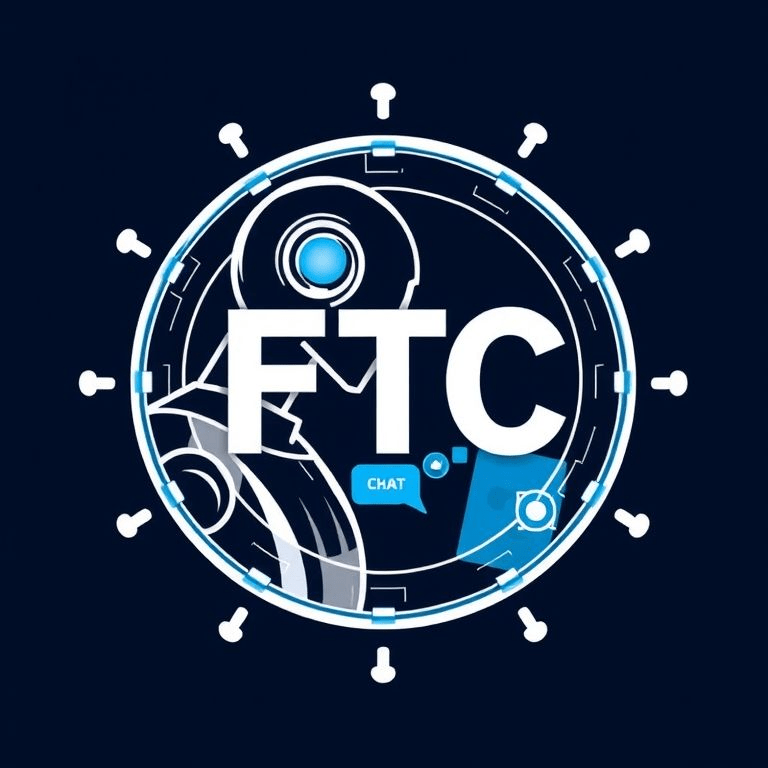Introduction
The Federal Trade Commission (FTC) has launched a major inquiry into AI chatbots designed as companions, marking a significant step in the regulation of AI technologies in the United States. This investigation focuses on potential safety, privacy, and ethical risks associated with AI systems that interact intimately with humans. Companies under scrutiny include Alphabet, Meta, Snap, OpenAI, and xAI, all of which have developed AI chatbots for consumer-facing applications ranging from customer service to virtual companionship.
As AI chatbots become increasingly sophisticated, concerns about emotional manipulation, misinformation, data privacy, and potential exploitation have grown. The FTC’s investigation reflects growing regulatory attention to ensure AI systems are deployed responsibly, particularly when interacting with vulnerable populations such as children, seniors, or individuals with mental health challenges.
Background: Rise of AI Chatbots
AI chatbots have evolved rapidly over the past decade. Initially limited to scripted responses in customer service, modern AI chatbots now employ large language models (LLMs) and natural language processing (NLP) to generate contextually relevant, human-like conversations. Companion chatbots, in particular, are designed to provide emotional support, personalized advice, or entertainment, blurring the line between software and human interaction.
While these technologies offer benefits such as reducing social isolation, improving mental health support, and providing educational assistance, they also raise concerns:
- Data Privacy: Chatbots often collect sensitive user data, raising risks of misuse or breaches.
- Emotional Manipulation: AI companions may influence users’ emotions, decisions, or beliefs without transparency.
- Misinformation: Chatbots can inadvertently provide inaccurate or biased information, affecting users’ judgment.
FTC’s Legal Authority and Actions
The FTC has broad authority to investigate consumer protection and privacy violations. Under Section 6(b) of the FTC Act, the commission can require companies to provide detailed information about their practices, policies, and data handling.
As part of its investigation, the FTC has issued 6(b) orders to seven companies operating AI companion chatbots, requesting comprehensive disclosures regarding:
- Safety protocols implemented for users.
- Data collection, storage, and sharing practices.
- Measures to prevent harmful content generation.
- Oversight mechanisms and internal ethical review processes.
This inquiry reflects the FTC’s commitment to ensuring that AI technologies adhere to principles of transparency, fairness, and accountability, particularly when deployed in consumer-facing applications.
Companies Under Investigation
1. Alphabet (Google)
Alphabet’s AI chatbot initiatives, including AI companions embedded in Google’s ecosystem, are part of the inquiry. The FTC is examining how Google handles sensitive user data, safeguards against misinformation, and ensures chatbots do not create emotional dependency.
2. Meta
Meta’s AI-driven conversational agents, integrated into social media platforms, have raised concerns about targeted manipulation and data privacy. The FTC is evaluating whether Meta’s chatbots adhere to ethical guidelines and consumer protection standards.
3. Snap
Snap has introduced AI chat features for younger audiences on its messaging platforms. The FTC is particularly focused on compliance with age-related protections and preventing exposure to harmful AI content.
4. OpenAI
OpenAI’s conversational AI models, including ChatGPT derivatives used for companionship, are under scrutiny for safety, privacy, and transparency. OpenAI has pledged cooperation and is reviewing its internal policies to address the FTC’s concerns.
5. xAI
xAI, led by Elon Musk, has developed AI chatbots intended to simulate companion interactions. The FTC is examining safeguards against emotional manipulation and the company’s data usage practices.
Expert Opinions and Industry Reactions
Ethical and Safety Concerns
Dr. Rebecca Thornton, an AI ethics researcher, commented:
“Companion chatbots represent a new frontier in human-computer interaction. While they offer social benefits, the potential for misuse is significant. Regulatory oversight is essential to protect vulnerable users.”
Industry Perspective
Companies under investigation have expressed a willingness to cooperate and enhance safety measures. Some executives emphasized that AI companions are intended for entertainment and support, not to replace human interaction, and committed to reinforcing transparency and privacy standards.
Consumer Advocacy Groups
Advocacy organizations have welcomed the FTC’s inquiry, highlighting risks of exploitation, especially among children and vulnerable populations. They have urged stricter guidelines for ethical AI deployment and regular audits to prevent harm.
Risks and Challenges of AI Companions
- Privacy Breaches: Companion chatbots collect extensive personal information, including emotional states, daily routines, and preferences, which could be misused or hacked.
- Emotional Dependency: Users may form attachments to AI companions, leading to unhealthy social isolation or distorted perception of human relationships.
- Bias and Inaccuracy: AI chatbots may generate content influenced by training biases or errors, potentially spreading misinformation or harmful suggestions.
- Ethical Dilemmas: AI companions may be used to manipulate emotions for commercial gain, raising moral and legal questions.
Global Context and Comparison
The FTC’s investigation aligns with international trends in AI regulation:
- European Union: The EU’s AI Act regulates high-risk AI systems, including those affecting personal safety or fundamental rights.
- United Kingdom: The UK has issued voluntary AI guidelines emphasizing transparency and safety.
- Asia-Pacific: Countries like Japan and Singapore are exploring AI ethics frameworks to manage AI-human interactions responsibly.
By addressing companion AI systems, the FTC aims to prevent the US from lagging in establishing practical AI safeguards compared to global standards.
Consumer and Business Implications
For Consumers
Users of AI companion chatbots may see enhanced privacy protections, safety warnings, and transparency regarding AI capabilities. Awareness campaigns may be launched to educate users on ethical and safe usage.
For Businesses
Companies developing AI companions will need to:
- Implement stronger data governance practices.
- Conduct ethical audits and risk assessments.
- Ensure transparency in AI-generated advice and interactions.
Non-compliance could result in fines, litigation, or reputational damage, highlighting the importance of proactive regulatory alignment.
Future Outlook
The FTC’s inquiry could lead to:
- New Guidelines: Formal standards for AI companion safety, privacy, and ethical behavior.
- Enhanced Oversight: Periodic audits and compliance checks for AI developers.
- Industry Accountability: Clear rules governing AI content, user engagement, and data practices.
Long-term, this investigation may influence how AI companions are developed and deployed, ensuring that human-AI interactions are safe, transparent, and socially beneficial.
Conclusion
The FTC’s investigation into AI chatbots acting as companions underscores the increasing importance of AI regulation in consumer-facing technologies. As chatbots become more sophisticated and emotionally engaging, proactive oversight is essential to prevent misuse, protect privacy, and maintain ethical standards.
By addressing the risks associated with AI companions, the FTC is laying the groundwork for a safer, more transparent AI ecosystem in the United States. The inquiry also positions the US alongside global efforts to govern AI technologies responsibly, setting a precedent for future legislation and ethical guidelines.







